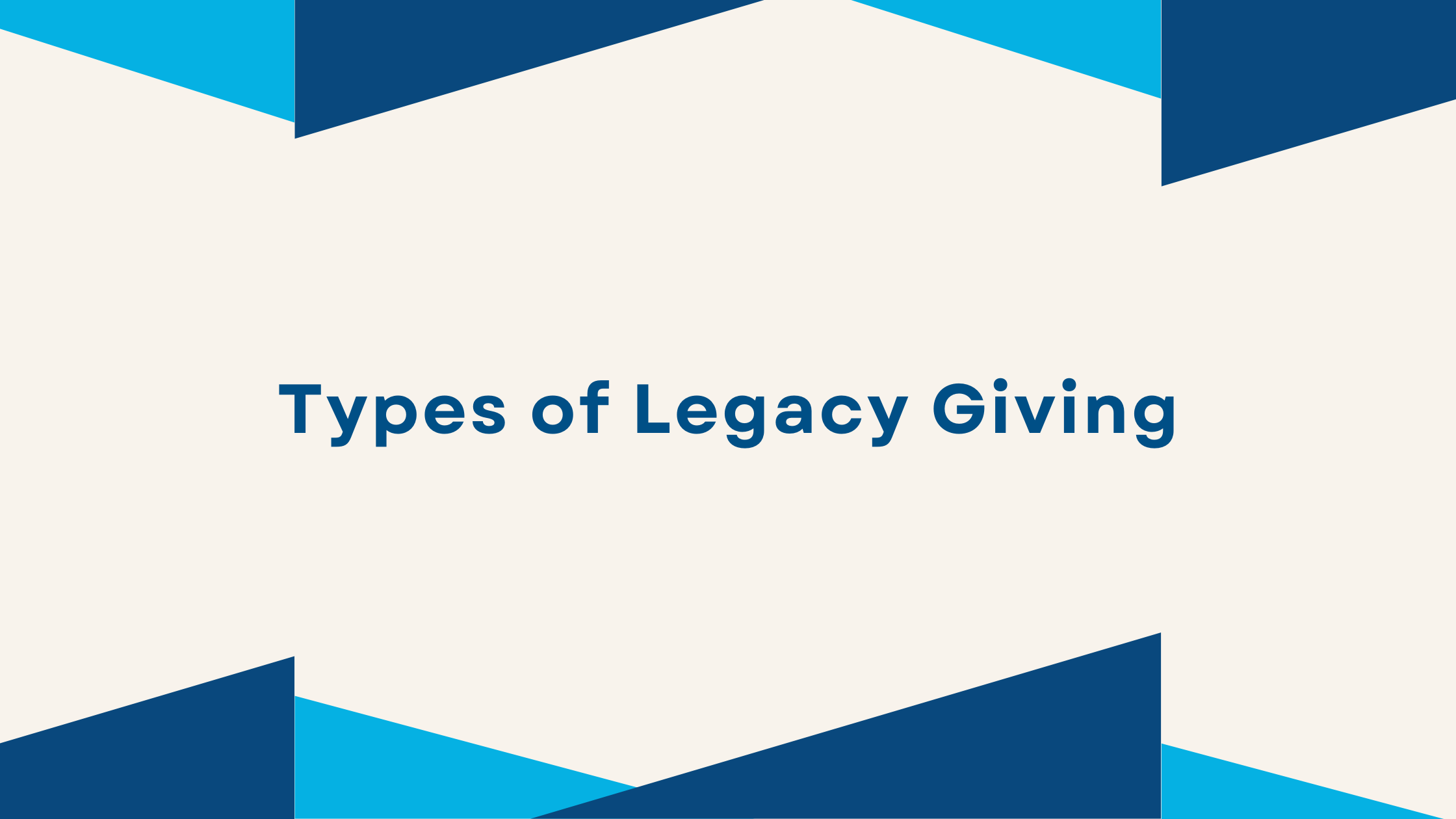Legacy giving, also known as planned giving, is a meaningful way to support charities or causes you care about through financial contributions that extend beyond your lifetime. This can take the form of bequests, trusts, annuities, or other financial instruments that ensure your wealth benefits future generations.
Why Legacy Giving Matters
Legacy giving isn’t just about money—it’s about impact. When you include a charitable organization in your estate planning, you’re investing in a future aligned with your values. It allows nonprofits to plan long-term projects, support ongoing initiatives, and create sustainable change in communities.
Nonprofit Resources
The Charity Charge resource hub is dedicated to providing tips, tools, and information to help your nonprofit create and grow a modern organization. Learn more
Types of Legacy Giving
Bequests in a Will
A simple and common form of legacy giving, a bequest involves leaving a portion of your estate—whether cash, property, or investments—to a charity in your will.
Charitable Remainder Trusts (CRTs)
This trust allows you (or a designated beneficiary) to receive income during your lifetime, with the remaining assets going to a charitable organization upon your passing.
Charitable Gift Annuities (CGAs)
A CGA provides donors with a fixed income for life in exchange for a charitable donation. It’s a great way to support a cause while securing financial stability. Read more about CGAs.
Endowments
An endowment is a donation that is invested, and only the interest or returns are used to fund charitable programs. This ensures that the gift continues to provide support indefinitely.
Life Insurance & Retirement Accounts
Naming a charity as the beneficiary of a life insurance policy or retirement account (like an IRA or 401(k)) is another way to leave a meaningful legacy.
Benefits of Legacy Giving
✅ Tax Advantages – Many planned giving options offer significant tax benefits for you and your heirs.
✅ Financial Security – Some options, like annuities and trusts, provide lifetime income.
✅ Lasting Impact – Your gift ensures nonprofits continue their mission long after you’re gone.
✅ Personal Fulfillment – Knowing your wealth supports causes you cherish brings peace of mind.
How to Get Started with Legacy Giving
- Define Your Legacy – Consider the causes that matter most to you.
- Consult a Financial Advisor – Work with professionals to explore tax benefits and structure your gift effectively.
- Update Your Estate Plan – Ensure your will or trust reflects your charitable intentions.
- Communicate Your Wishes – Inform your loved ones and chosen charities about your plans.
Helpful Links
- National Association of Estate Planners & Councils – https://www.naepc.org/ (Resources for estate planning and charitable giving)
- National Philanthropic Trust – https://www.nptrust.org/ (Donor-advised funds and giving strategies)
- Planned Giving Council – https://www.ppgc.net/ (Guidance on planned giving)
- IRS Charitable Contributions – https://www.irs.gov/charities-non-profits/charitable-organizations (Tax benefits of charitable giving)
Final Thoughts
Legacy giving is a powerful way to extend your values beyond your lifetime. By planning your charitable contributions thoughtfully, you create a meaningful impact that benefits future generations.





